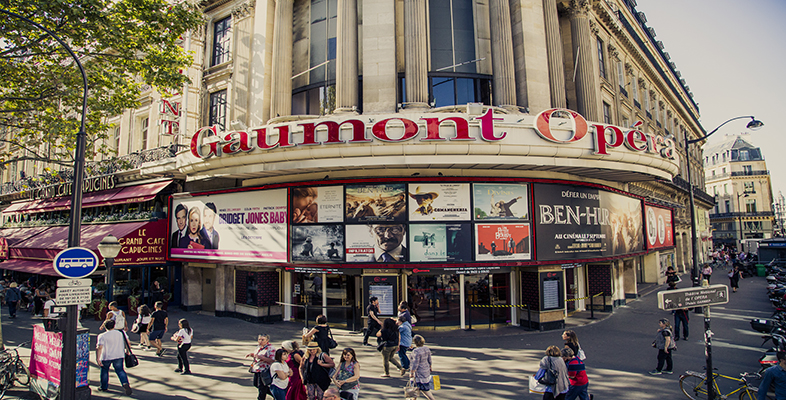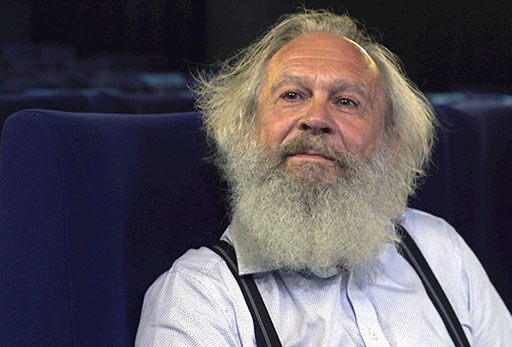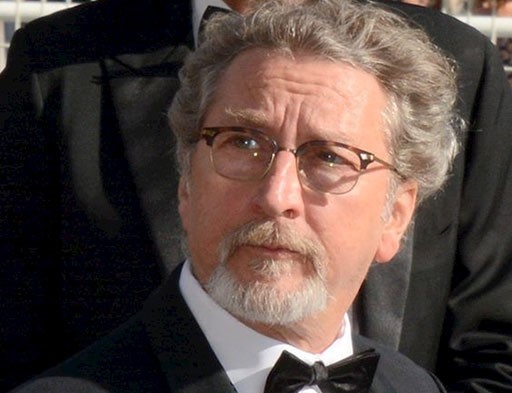2.1 « Printemps du film engagé »
Dans cette section, vous allez visionner une vidéo dans laquelle Jean-Pierre Brundu, l’organisateur du festival “Printemps du film engagé” de Marseille, parle de l’importance du cinéma engagé en France.
Explorant la mise en place d’un festival du film engagé à Marseille, cette vidéo vous aidera aussi à comprendre la spécificité du cinéma « Art et Essai ».
Activité 4
a.
1. caractéristiques des cinémas d’art et d’essai
b.
2. le prix des places au cinéma
c.
3. le système de financement des films grand public
d.
4. thèmes abordés dans les films d’art et d’essai
e.
5. les réalisateurs marseillais
f.
6. l’université d’Aix-Marseille
g.
7. l’université populaire d’Aubagne
h.
8. exemples de sujets de société et d’actualité
i.
9. le coût de production d’un film d’art et d’essai
The correct answers are a, b, d, e, g and h.
Notes culturelles
René Allio (1924–1995): French film and theatre director, born in Marseille.
Paul Carpita (1922–2009): film director from Marseille, known for his socially and politically committed documentaries on the reconstruction of Marseille, demonstrations against the Indochina War and the great dockers’ strike of 1950.
Robert Guédiguian (1953): French film director, screenwriter, producer and actor. His films are firmyly anchored in social reality and marked by the local and regional environment of Marseille, in particular L’Estaque, as for example in « Marius et Jeannette ».
GIGN (Groupe d’intervention de la Gendarmerie nationale): an elite tactical police unit, specialised in combatting organised crime and national threat.
Front national: former name of Rassemblement National, a right-wing populist political party, led for decades by members of Jean-Marie Le Pen’s family.
Fokus 21: organisation whose aim is to inform about citizens’ initiatives and encourage collective action, especially with regard to social and environmental issues.
« Maso et Miso vont en bateau » (1975): a 55-minute-long feminist documentary, a caustic parody of a TV show in which Bernard Pivot (journalist and TV host) has as his guest Minister Françoise Giroud, then secretary of state for the status of women.
Notes culturelles
Centre méditerranéen du cinéma: The accurate name of this centre is Centre méditerranéen de création cinématographique (CMCC): it was created in1979 by René Allio, with the support of Gaston Deferre, socialist Deputy-Mayor of Marseille and president of the Regional Council of Provence-Alpes-Côte d’Azur. The objectives of the Centre were to support local film makers as well as prospective ones, who wanted to develop their professional skills without having to move to Paris. The centre also organised professional meetings between representatives of various disciplines (beyond film making), which led to fruitful collaborations at regional, national, and international levels. To quote Robert Guédiguian, these encounters represented « une espèce d’Internationale de la culture méditerranéenne ». From 1982, the French Ministry of Culture included the CMCC as part of the Centre National de la Cinématographie’s regional mission.
Examples of films created by CMCC: https://en.unifrance.org/ directories/ company/ 72016/ centre-mediterraneen-de-creation-cinematographique-cmcc [Tip: hold Ctrl and click a link to open it in a new tab. (Hide tip)]


